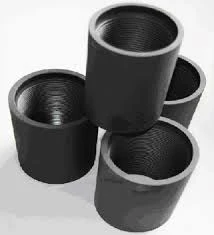- Afrikaans
- Albanian
- Amharic
- Arabic
- Armenian
- Azerbaijani
- Basque
- Belarusian
- Bengali
- Bosnian
- Bulgarian
- Catalan
- Cebuano
- Corsican
- Croatian
- Czech
- Danish
- Dutch
- English
- Esperanto
- Estonian
- Finnish
- French
- Frisian
- Galician
- Georgian
- German
- Greek
- Gujarati
- Haitian Creole
- hausa
- hawaiian
- Hebrew
- Hindi
- Miao
- Hungarian
- Icelandic
- igbo
- Indonesian
- irish
- Italian
- Japanese
- Javanese
- Kannada
- kazakh
- Khmer
- Rwandese
- Korean
- Kurdish
- Kyrgyz
- Lao
- Latin
- Latvian
- Lithuanian
- Luxembourgish
- Macedonian
- Malgashi
- Malay
- Malayalam
- Maltese
- Maori
- Marathi
- Mongolian
- Myanmar
- Nepali
- Norwegian
- Norwegian
- Occitan
- Pashto
- Persian
- Polish
- Portuguese
- Punjabi
- Romanian
- Russian
- Samoan
- Scottish Gaelic
- Serbian
- Sesotho
- Shona
- Sindhi
- Sinhala
- Slovak
- Slovenian
- Somali
- Spanish
- Sundanese
- Swahili
- Swedish
- Tagalog
- Tajik
- Tamil
- Tatar
- Telugu
- Thai
- Turkish
- Turkmen
- Ukrainian
- Urdu
- Uighur
- Uzbek
- Vietnamese
- Welsh
- Bantu
- Yiddish
- Yoruba
- Zulu
api 5ct tubing coupling
Understanding API 5CT Tubing Coupling Specifications and Importance
API 5CT is a specification established by the American Petroleum Institute (API) that outlines the requirements for casing and tubing used in well construction. Among these crucial components, the tubing coupling plays a significant role in ensuring the integrity and functionality of oil and gas extraction operations. This article delves into the specifications, types, and importance of API 5CT tubing couplings within the industry.
What Is API 5CT?
API 5CT is a standard that governs the specifications and quality requirements for two essential components used in oil and gas production tubing and casing. While casing refers to the pipes used to prevent the well from collapsing and to protect groundwater resources, tubing refers to the pipe through which oil and gas are produced to the surface. API 5CT outlines the materials, dimensions, and mechanical properties necessary for both tubing and casing to ensure their ability to withstand various pressures and environmental conditions prevalent in drilling operations.
The Role of Tubing Couplings
A tubing coupling is a connector that joins lengths of tubing together, allowing for the continuous flow of hydrocarbons from the reservoir to the surface. Couplings are critical in ensuring that the tubing remains sealed and resistant to leakage, which is vital for both safety and efficiency in oil recovery. The coupling must provide a secure connection that can withstand tension, compression, and torsion, given the stresses encountered during drilling and production.
Specifications of API 5CT Tubing Couplings
API 5CT outlines several specifications for tubing couplings, focusing on the materials and performance characteristics. The couplings must typically have a hardness specification and a minimum yield strength, ensuring they provide reliable service under high-pressure conditions. Couplings are often categorized based on their yield strength, which can vary from Grade H-40 to Grade P-110, with higher grades indicating stronger materials capable of enduring greater pressures.
api 5ct tubing coupling

Types of Tubing Couplings
1. Regular Couplings These are the most common type and are designed for general usage in oil and gas applications. They feature standard dimensions and are suitable for various tubular grades.
2. Premium Couplings Premium couplings are designed with advanced sealing abilities and enhanced locking mechanisms. They are manufactured for high-performance grades and are ideal for challenging conditions, such as deep-sea drilling and high-pressure environments.
3. Heavy Wall Couplings As the name suggests, these couplings have a thicker wall to provide extra strength and are often used in demanding geological formations.
Importance of API 5CT Tubing Couplings
The importance of API 5CT tubing couplings cannot be overstated in the oil and gas industry. A reliable coupling ensures that the system operates efficiently, minimizing the risk of leaks and blowouts, which can lead to severe environmental and safety hazards. By adhering to API 5CT specifications, manufacturers create couplings that enhance the overall strength of the tubular string, enabling the efficient and safe extraction of hydrocarbons.
Additionally, the market for API 5CT tubing couplings features a variety of suppliers, enabling operators to access quality couplings that meet their specific operational demands. Choosing the right coupling based on the application and the geological conditions can result in significant savings and increased operational efficiency.
In conclusion, API 5CT tubing couplings are a fundamental component of oil and gas production systems. Their role in ensuring a secure connection within the tubular string is critical for maintaining safety and operational efficiency in hydrocarbon extraction. By understanding the specifications and types of couplings available, operators can make informed decisions that enhance their overall production capabilities while adhering to industry standards. The ongoing advancements in material science and engineering continue to improve the quality of tubing couplings, further solidifying their importance in the ever-evolving energy sector.
-
Tubing Pup Joints: Essential Components for Oil and Gas OperationsNewsJul.10,2025
-
Pup Joints: Essential Components for Reliable Drilling OperationsNewsJul.10,2025
-
Pipe Couplings: Connecting Your World EfficientlyNewsJul.10,2025
-
Mastering Oilfield Operations with Quality Tubing and CasingNewsJul.10,2025
-
High-Quality Casing Couplings for Every NeedNewsJul.10,2025
-
Boost Your Drilling Efficiency with Premium Crossover Tools & Seating NipplesNewsJul.10,2025







